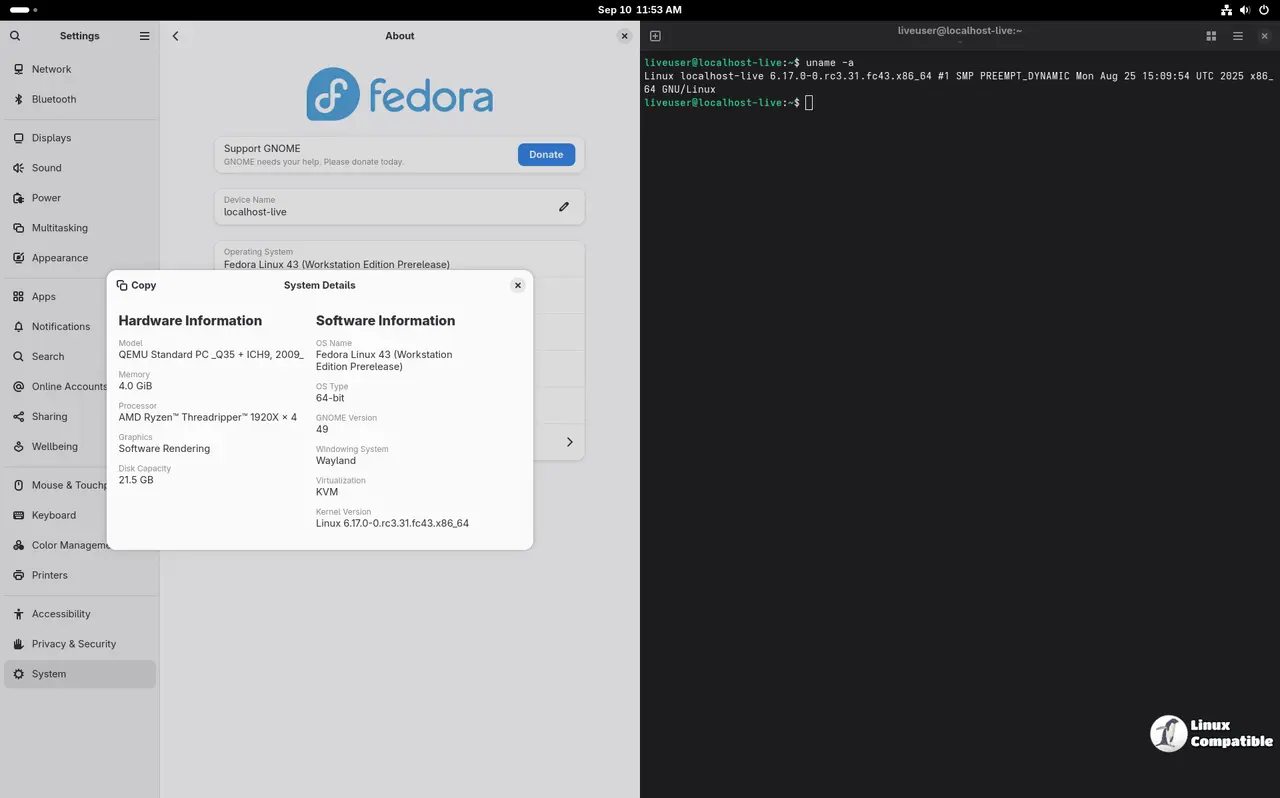Fedora Linux 43 Release Candidate 1.6 has been launched, providing users with a testing opportunity to explore various enhancements and new features across multiple desktop environments. This version includes significant updates like XFCE 4.20, which now supports Wayland in an experimental capacity, and LXQt 2.1, which has transitioned to using Wayland by default through miriway integration. Additionally, the Fedora COSMIC Spin introduces innovative features such as hybrid per-workspace tiling management and customizable window stacks.
In terms of development tools, Fedora 43 has made notable improvements. The Copilot Runtime Verification Framework, developed by NASA, enables the creation of complex, real-time C applications, enhancing both performance and reliability. Ruby has been updated to version 3.4, featuring a new default parser, improved performance from the YJIT compiler, and the Happy Eyeballs Version 2 socket feature. PHP 8.4 also introduces several enhancements, including property hooks for computed properties and new array functions, further solidifying its status as a leading programming language.
Moreover, the update includes essential tools from the GNU Toolchain, such as GCC 15 and GDB 15+, ensuring developers are equipped with the latest technologies. The addition of the FEX Emulator allows developers to run x86 and x86-64 binaries on AArch64 Linux hosts, facilitating easier app testing. Furthermore, there are plans for a transition from SDL 2 to SDL 3 to enhance performance and usability.
As Fedora continues to evolve, users are encouraged to participate in the testing phase by checking for current blocker and freeze exception bugs and downloading the release images from the provided links. This collaborative approach aims to refine Fedora 43 further before its final release, ensuring a robust and user-friendly operating system for all
In terms of development tools, Fedora 43 has made notable improvements. The Copilot Runtime Verification Framework, developed by NASA, enables the creation of complex, real-time C applications, enhancing both performance and reliability. Ruby has been updated to version 3.4, featuring a new default parser, improved performance from the YJIT compiler, and the Happy Eyeballs Version 2 socket feature. PHP 8.4 also introduces several enhancements, including property hooks for computed properties and new array functions, further solidifying its status as a leading programming language.
Moreover, the update includes essential tools from the GNU Toolchain, such as GCC 15 and GDB 15+, ensuring developers are equipped with the latest technologies. The addition of the FEX Emulator allows developers to run x86 and x86-64 binaries on AArch64 Linux hosts, facilitating easier app testing. Furthermore, there are plans for a transition from SDL 2 to SDL 3 to enhance performance and usability.
As Fedora continues to evolve, users are encouraged to participate in the testing phase by checking for current blocker and freeze exception bugs and downloading the release images from the provided links. This collaborative approach aims to refine Fedora 43 further before its final release, ensuring a robust and user-friendly operating system for all
Fedora Linux 43 RC 1.6 released
The Fedora Linux 43 Release Candidate 1.6 has been released for testing, featuring various desktop environments with new improvements and features. The release includes updates such as XFCE 4.20 with experimental Wayland support and LXQt 2.1, which now uses Wayland by default via miriway. Fedora 43 also offers several enhancements for developers, including the Copilot Runtime Verification Framework and updates to languages like Ruby and PHP.


